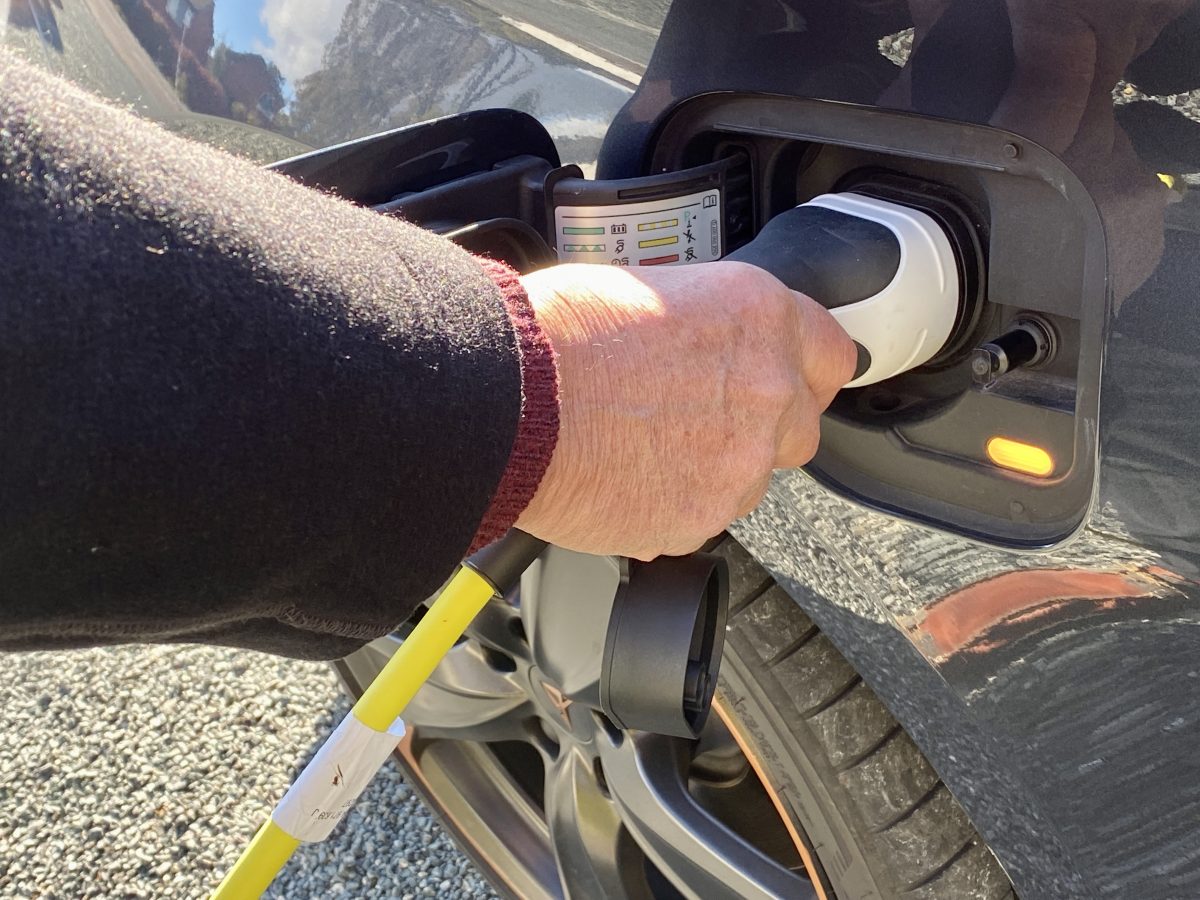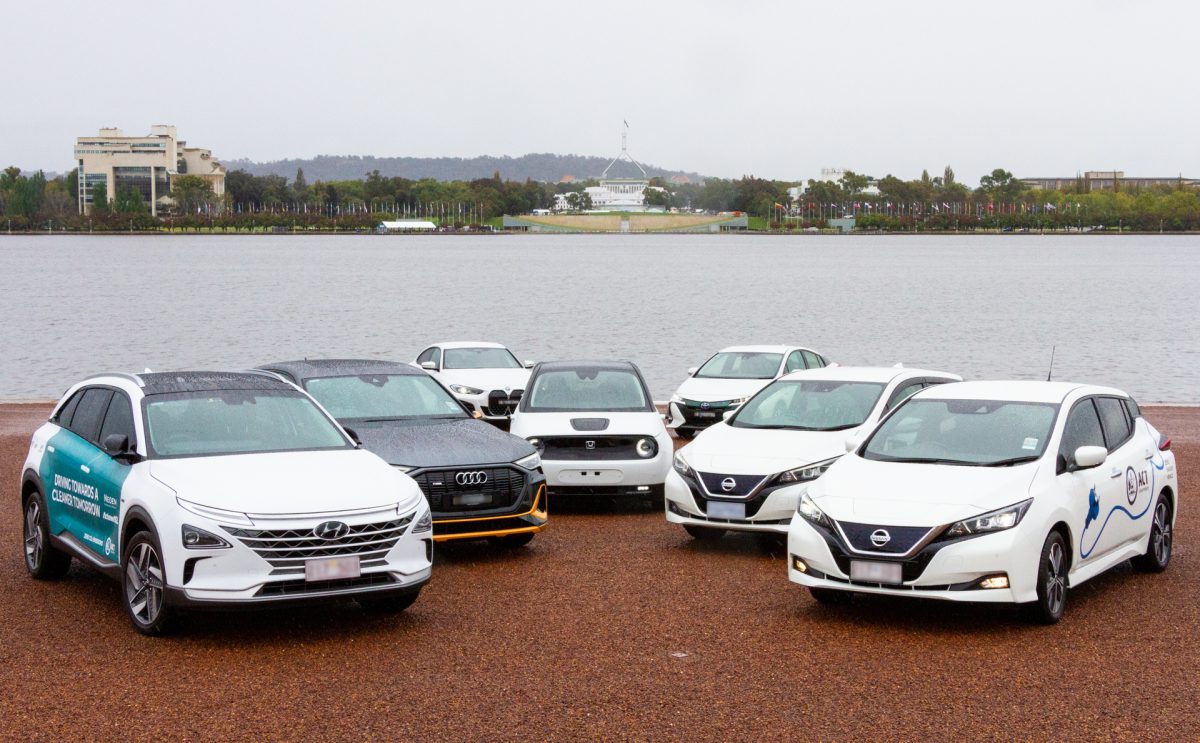
The Victoria road-user charge costs electric and hydrogen vehicle owners 2.8 cents per kilometre. Photo: James Coleman.
Canberra’s electric vehicle (EV) owners are cheering on the High Court after a ruling on 18 October sent the Victorian government’s ‘road-user charge’ packing.
“A deliberate attack on EVs is pretty crazy given where we’re trying to head globally,” said Darryl Bourke, secretary of the ACT Branch of the Australian Electric Vehicle Association (AEVA ACT).
“We’re not shirking our responsibility. If a proper road user tax is introduced based on the weight of your vehicle, distance travelled, that sort of stuff, that’s fair enough, but to distinguish based on the type of propulsion, it’s utterly ridiculous.”
But there could also be implications for other taxes and levies imposed by state and territory governments, not least of all vehicle registration costs.
Chris Vanderstock and Kath Davies launched a lawsuit against the Victorian Government soon after it introduced a zero- and low-emission vehicle road user charge in 2021.
It was described as a way for the government to raise revenue for roads and EV charging infrastructure. It required electric and hydrogen vehicle owners to pay 2.8 cents per kilometre and plug-in hybrid vehicle owners 2.3 cents. Hybrids were exempt.
Motorists had to submit photos of their car’s odometer to the government each year, at risk of being charged for driving 13,500 km or having their registration suspended or cancelled.
Vanderstock and Davies’ lawyers argued only the Federal Government has the power to levy a tax on the use of goods (like a car) and that as a tax collected by the state, the road-user charge was not comparable.
The High Court found in favour of the owners, sending shockwaves throughout Australia.

EV registration numbers in the ACT exceed 5000. Photo: James Coleman.
NSW and Western Australia both had plans to introduce similar charges in 2027, but in a statement, NSW Treasurer Daniel Mookhey said the government would now “study” the High Court decision.
“The implications need to be carefully considered,” he said.
“The transition to net zero is only possible if the rules are applied fairly and are seen to be fair.”
Here in the ACT, where EV take-up is higher per capita than anywhere else in the country, Chief Minister Andrew Barr is more conclusive.
“What it means is that road user charging is now firmly in the court of the federal government,” he told Region on 19 October.
“They will have to move on that. On the upside, it means there will be a consistent national approach should they do so.”
The Chief Minister said there was no “hard evidence” to suggest other territory charges and levies were at risk, but the government is “taking advice on that”.
“Obviously, there will be a lot of different legal opinions on that question.”
Maarten Vlot is a litigation law expert with Deakin-based law firm Snedden, Hall & Gallop and has pored over the entire 400-page decision.
He explained that before the ruling, the definition of an excise was a “tax on goods”, including their manufacture, supply and sale, which the Commonwealth has exclusive jurisdiction over.
“What they looked at on 18 October was the use of goods,” he told Region.
“The position was that when goods are used, they’re not subject to an excise and the states are free to raise taxes on it.”
However, the court decided a prohibited state excise was a tax closely related to the production or manufacture, sale, distribution or consumption of goods that could affect its manufacture or production.
In other words, a road-user charge would disincentive the sale of EVs and, in turn, their manufacture.

Chief Minister Andrew Barr and Minister for Energy and Emissions Reduction Shane Rattenbury. Photo: Lottie Twyford.
In Mr Vlot’s interpretation, this also leaves other taxes on the use of goods – such as registration – “open for challenge”.
“But the question is whether anyone would want to do that because clearly the Commonwealth wouldn’t want the extra responsibility of managing registration.”
From 1 July 2024, the ACT Government will calculate vehicle registration costs based on their emissions rather than weight to avoid penalising EVs and their heavy battery packs.
But Mr Vlot didn’t expect this to face any legal challenge.
“At the moment, it’s quite clearly not challenged, so registration is still within the jurisdiction of the states and territories.”












